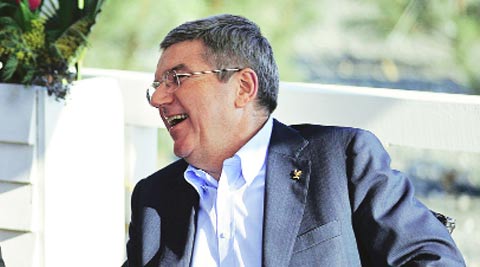Latest Comment
Post Comment
Read Comments
 IOC president Thomas Bach has launched a review of the Olympics
IOC president Thomas Bach has launched a review of the Olympics
Future Olympic bidders may have to abide by a specific anti-discrimination rule modelled on the Olympic Charter’s Principle 6 if they are to be awarded the Games, the International Olympic Committee said on Tuesday.
Principle 6 says sport does not discriminate on any grounds, including race, religion, politics or gender.
The IOC had to fend off criticism in the run-up to the Sochi Winter Olympics over Russia’s anti-gay propaganda law, which critics say curtailed the rights of homosexuals in the country.
They say the IOC has turned a blind eye to the controversial law, which was passed last year. The law triggered a wave of reaction from athletes and politicians with several world leaders opting not to travel to Russia for the Games.
The IOC has said it cannot dictate laws in a sovereign state but said it had received assurances from Russian President Vladimir Putin there would be no discrimination against homosexuals.
“We have made it absolutely crystal clear that Principle 6 covers all forms of discrimination,” IOC spokesman Mark Adams told reporters when asked whether it could become a pre-condition for cities campaigning to host the Games.
“Could it be changed? It can be changed,” he said. “We are, as you know, in the middle of Agenda 2020 which is looking at just about everything on how Olympics are run,” Adams said.
“It (Principle 6) is not something that is specifically looked at but if there is a groundswell of opinion it could be.”
Learning Lessons
Pressure has grown to include such a clause in the bid rules for future Olympics that would block nations from getting the Games if discriminatory laws existed. Current and former athletes, including Martina Navratilova as well as pop star Rihanna, are among the big names to have publicly spoken out in favour of Principle 6.
Lviv, Beijing, capital Oslo, Poland’s Krakow and Almaty are in the running for the 2022 Winter Olympics.

